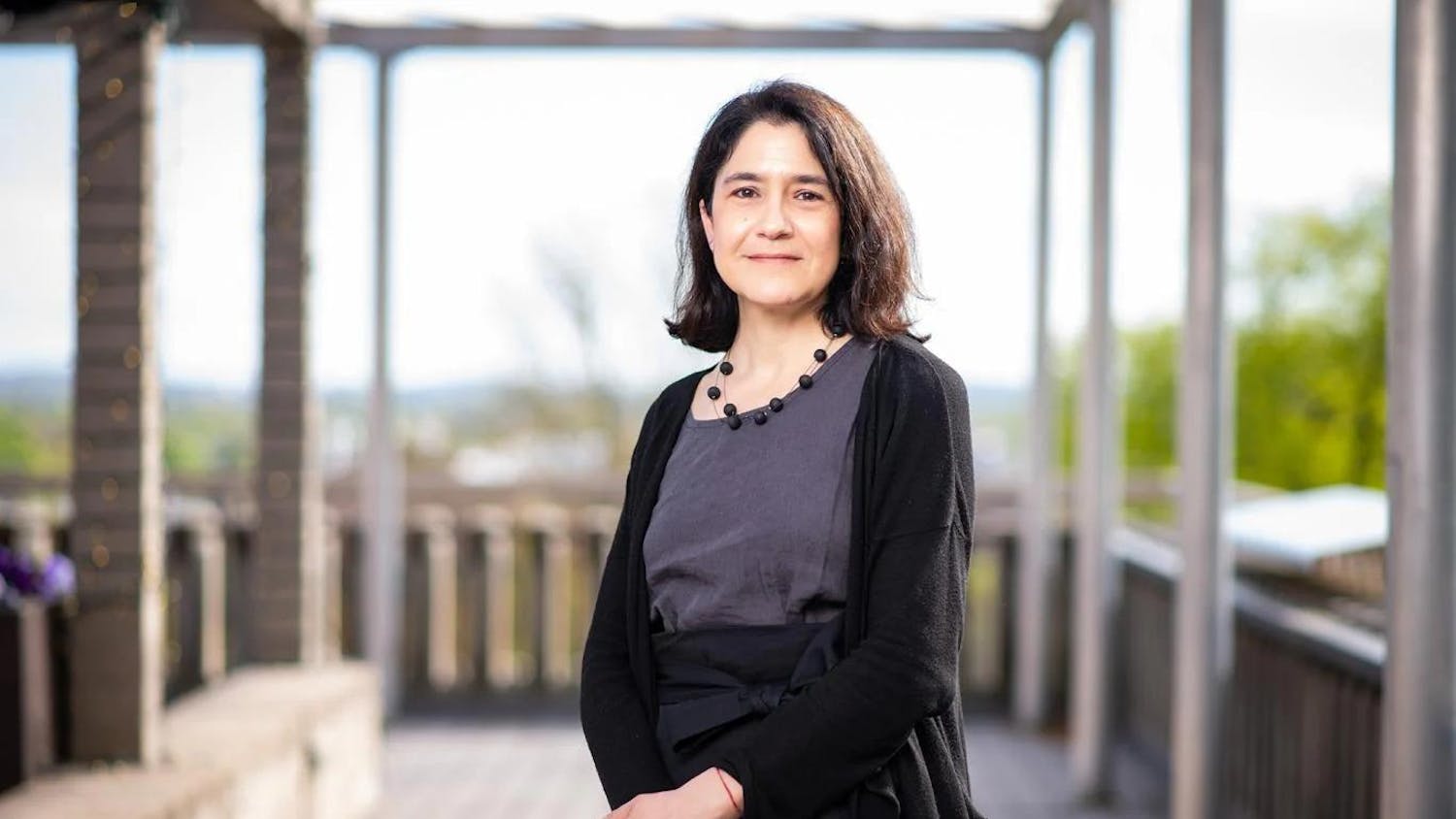The European Affairs Society of the Fletcher School of Law and Diplomacy hosted Martin Dahinden, Ambassador of Switzerland to the United States, for a lunch and discussion about Swiss foreign policy yesterday. The event was held at room 702 of the Cabot Intercultural Center, with approximately twenty people, mostly Fletcher students and faculty, in attendance.
Professor Gregory Gottlieb, director of the Feinstein International Center at Tufts, first introduced Dahinden to the audience, saying that Dahinden has served as the Swiss Ambassador since 2014 and worked as a member of the Swiss delegation to the GATT (General Agreement on Tariffs and Trade) as well as the director of the Geneva International Centre for Humanitarian Demining.
To begin his talk, Dahinden established key background information about Switzerland, explaining that the country is centered around three key identities: German, French and Italian. Informed by these multiple identities, Switzerland practices neutrality and embraces an international perspective, he explained.
Dahinden stated that Swiss foreign policy has three pillars: neutrality, direct democracy and federalism. He said Swiss neutrality is important in order to maintain geopolitical independence and sovereignty.
“Neutrality has developed … [because] the Swiss wanted, to some extent, to keep foreign powers out of their soil … [but] to be involved in European power politics in the power game,” he explained.
He then emphasized that direct democracy and federalism are also imperative in Swiss policymaking, as Switzerland values high political efficacy, political accessibility and political participation among its citizens.
“Involvement in political affairs is important for national cohesion,” Dahinden added.
He further explained that through direct democracy and federalism, the government is more able to accurately consult with and represent its citizens.
Dahinden explained that because Switzerland does not have a lot of raw materials, it is essential that Switzerland values its people, its skills and its connections with the international community.
"It is important to invest in the skill of people to gain [an] economic comparative advantage … [The] paradigm of the Swiss economy … [is] to add value to something,” he said.
This emphasis on skilled labor is demonstrated through Switzerland’s successful watch industry, Dahinden said.
Because Switzerland depends on finished products, Switzerland is a strong supporter of free trade, open markets and multilateralism, he explained.
Dahinden then outlined Swiss foreign policy priorities: human rights and the conservation of natural resources.
He said Swiss foreign policy strategy is practiced in four avenues: relationships with European Union (EU) member states, relationships with global partners, peace and security and sustainable development.
Dahinden asserted that Swiss relations with EU member states are the most important because of proximity, particularly illustrated through the Schengen system, and common values, demonstrated through bilateral negotiations.
However, he stated that Switzerland does not want to limit the scope of diplomatic cooperation to Europe.
“We should be universal in our contacts,” Dahinden said.
He emphasized Swiss relations with the United States, Brazil, Russia, India and China (the BRIC countries), the Association of Southeast Asian Nations (ASEAN) and the African Union (AU).
Next, Dahinden highlighted the importance of peace and security in Swiss foreign policy. He explained that Switzerland tries to pursue peaceful relations with everyone in order to maintain its own stability and success.
“We try to influence in a positive way with preventative diplomacy and mediation,” Dahinden elaborated.
According to Dahinden, Switzerland’s preventative diplomacy and mediation tactics include “good offices” mandates, in which Switzerland acts as a middleman between two countries that have closed off relations between each other. Switzerland practiced the “good offices” mandate between the United States and Cuba, as well as between the United States and Iran.
Finally, Dahinden outlined Switzerland’s fourth foreign policy goal of sustainable development and prosperity. He asserted that Switzerland attempts to accomplish sustainable development in social, economic and environmental sectors.
Dahinden stated that Swiss foreign policy is specifically tailored to Switzerland and thus is not universal.
“[Foreign policy] is always against a set of interests, a set of advantages and disadvantages,” he said.
After Dahinden’s speech, the audience engaged in a question-and-answer session. The discussion topics included humanitarian action in Syria, possible membership in the UN Security Council, Swiss immigration policy, peace talks between South Korea and North Korea and the Swiss national image.
Dahinden talked about stereotypical Swiss characteristics: cheese, chocolate, mountains and neutrality. However, he also said that Switzerland's other attributes are unfortunately less well-known.
"We need to show the innovation of Switzerland and not reproduce the stereotypes,” he said.
Peter Freudenstein, the organizer of the event and a second-year MALD student at Fletcher, agreed with Dahinden.
“We wanted to shape the conversation [about Switzerland] a bit towards a different direction, towards substantial issues," he told the Daily. "[It's important] to have a better understanding about how ... [Switzerland's] democratic principles ... [shape] foreign policy."
Dahinden gave key advice to aspiring diplomats studying at Tufts.
“I think [being a] diplomat is one of the most exciting postings. You have the opportunity not only to go to different countries and discover other cultures, but very often you also have the opportunity to change the substance of what you’re doing," he said in an interview with the Daily. "When you’re looking back after [a] certain time, you have a very rich life and have seen a lot, a lot of what’s in the world. And then something I always was proud of was the work in the interest of my country, in the interest of my population in Switzerland."
He also encouraged open-mindedness.
“You should, wherever you go, almost leave your perceptions behind and try to get a new picture, discover the countries in a new way, and to tackle the problems in a new way," he said.
Swiss ambassador Martin Dahinden discusses federalism, direct democracy and neutrality

Martin Dahinden (center), Ambassador of Switzerland to the United States of America, addresses the audience in Cabot 702 on Mar. 12, 2018.





